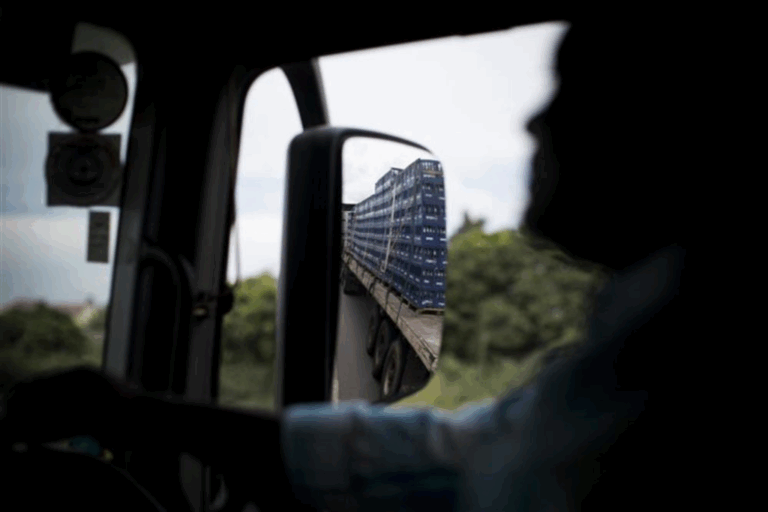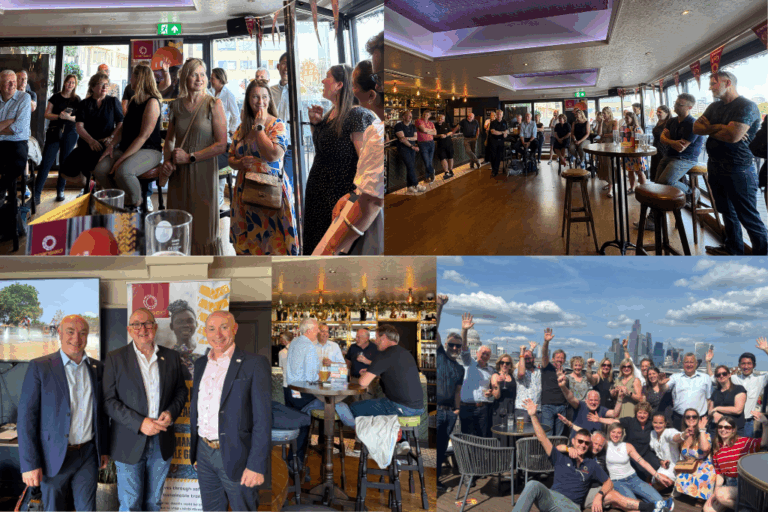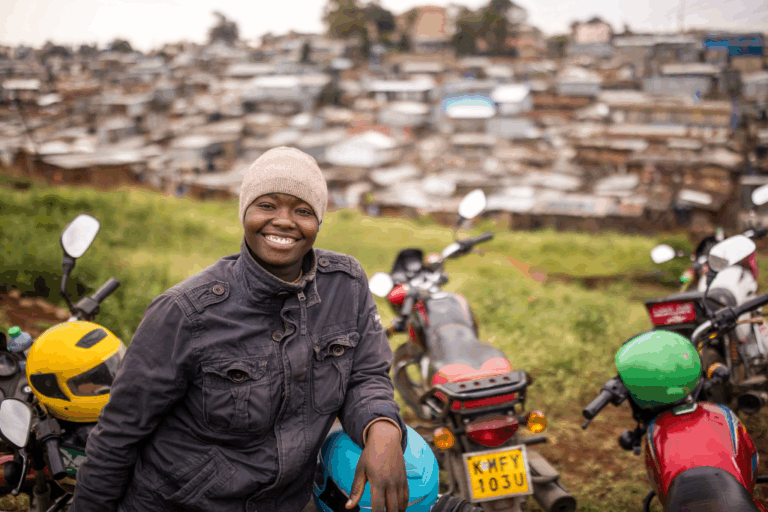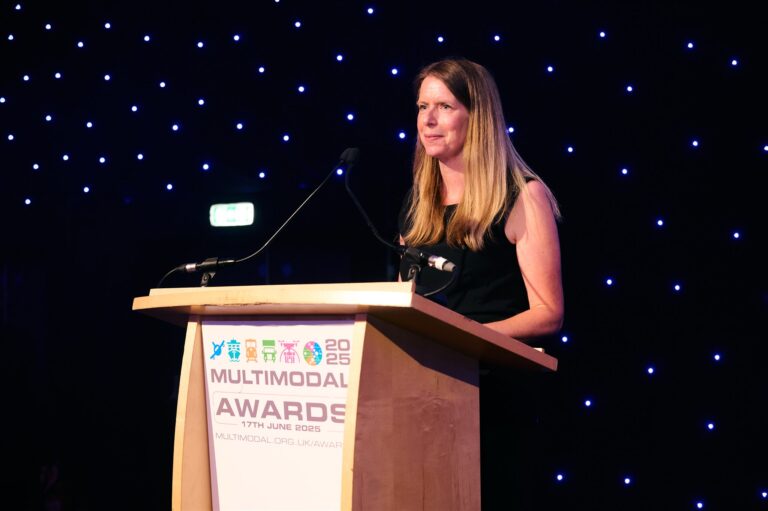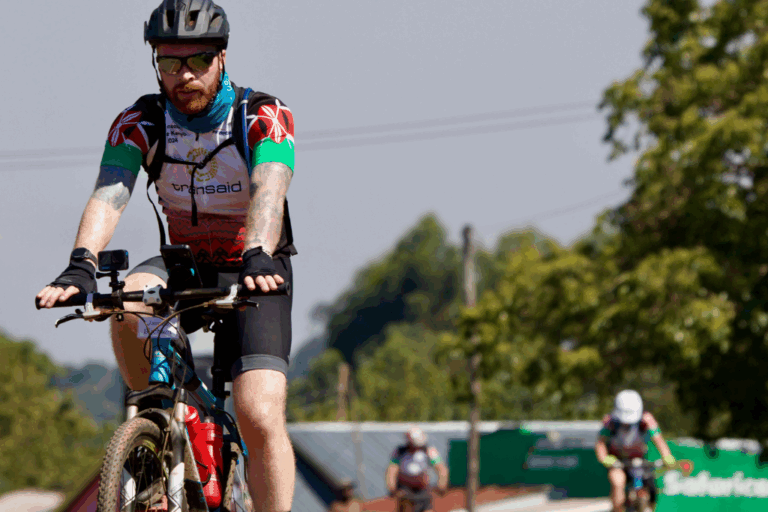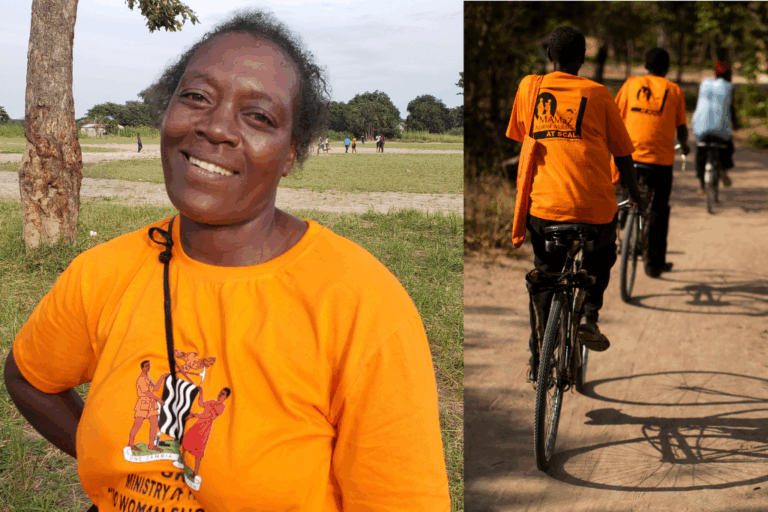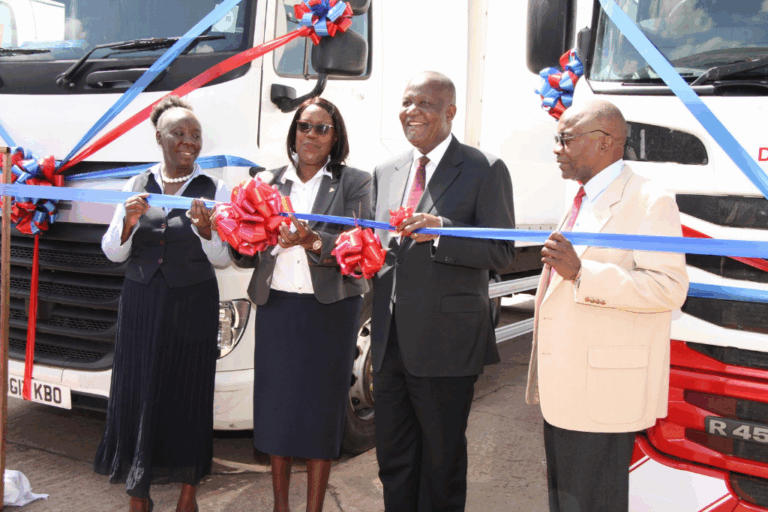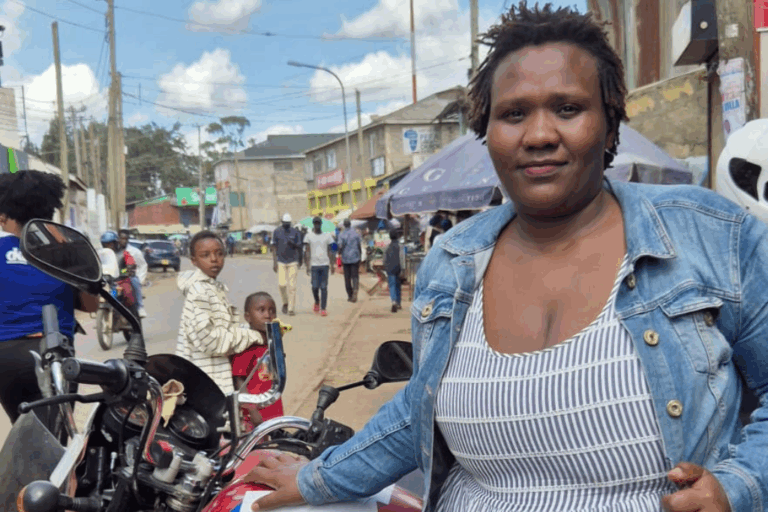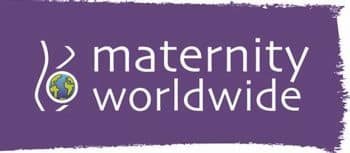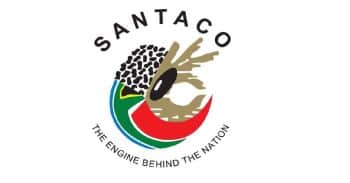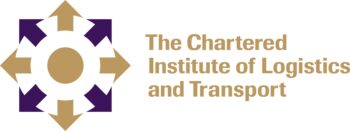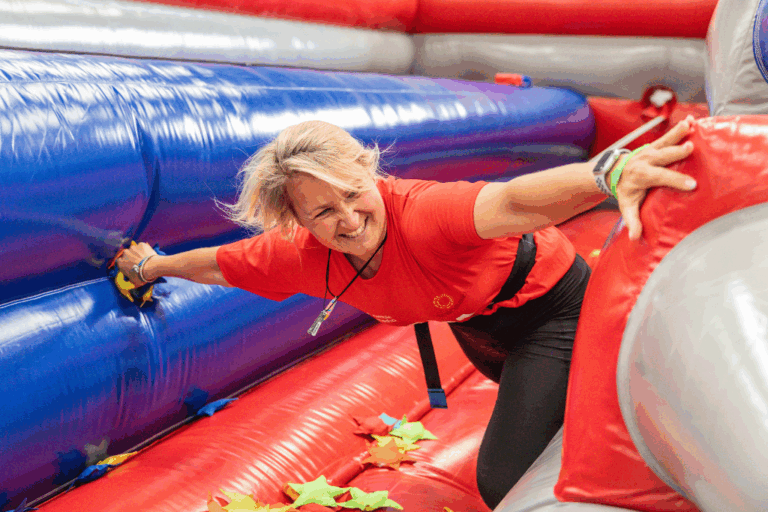
News
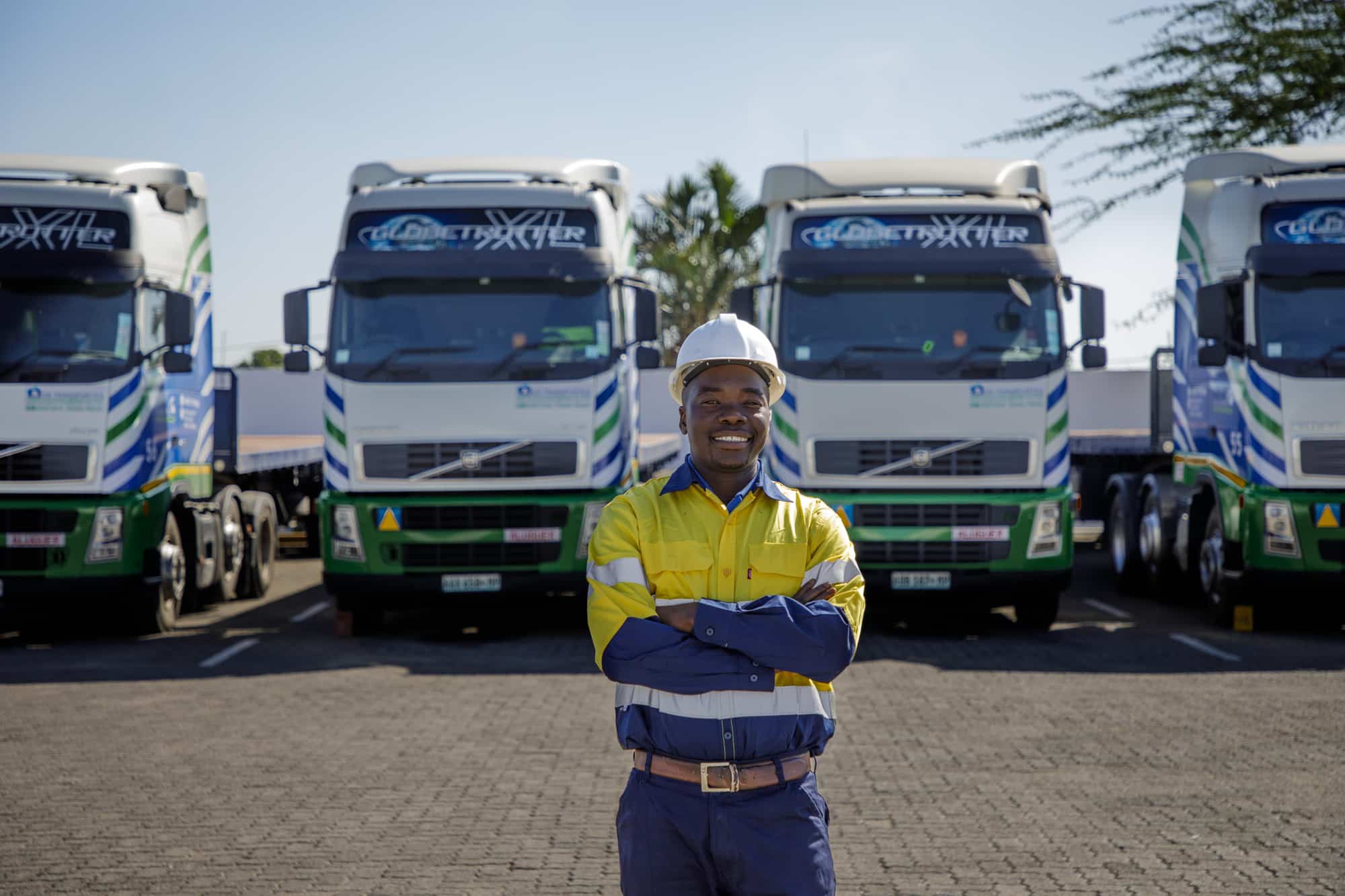
Interview: Phil Thompson, Professional Volunteer
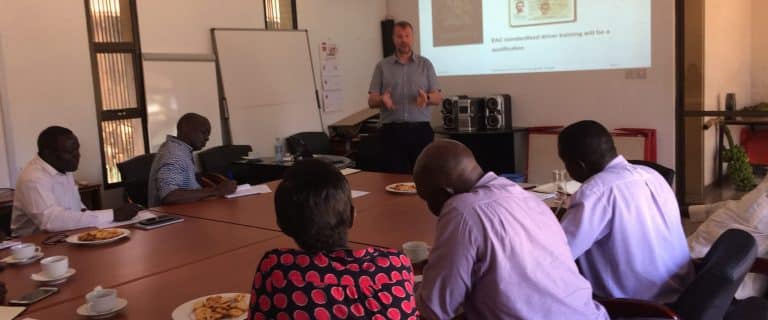
Monitoring and assessing performance of the projects in order to improve are essential aspects of Transaid’s programmes, and nowhere is this more important than in our landmark Professional Driver Training – Uganda project. Officially launched with key national stakeholders in July last year, at least 800 new and existing HGV and PSV drivers will be trained as part of the programme which will contribute to raising driving standards amongst drivers in Uganda.
In February 2018, Phil Thompson, then UK Fleet Manager for Carlsberg UK, visited Uganda as a professional volunteer to support the launch of a Monitoring, Evaluation and Learning initiative (MEL plan) for the project. As part of this program, he facilitated a workshop for private sector local transport operators that are participating in the monitoring initiative.
With a background in delivering measurable cost reduction projects, through the implementation of best practice, within a continuous improvement environment and having previously worked in sub-Saharan Africa, Phil relished the challenge. Transaid caught up with him to talk about his experiences of the workshop, working in Uganda, and being a professional volunteer for Transaid.
How did the experience come about?
It was at the first ever Microlise conference in 2015, strangely enough just before I was due to fly to Africa with Carlsberg. I just went over to Aggie (Krasnolucka-Hickman, now Transaid Project Manager) on a whim to learn about Transaid’s work, and that turned out to be the best thing I could have done!
What was your main role in Uganda?
My work out there was related to the introduction of KPIs (Key Performance Indicators) to monitor the success of PDTU training. Throughout my career in Logistics, I had been developing and implementing KPIs within the distribution environment for quite some time already, and I’d already worked in Africa with Carlsberg – so I didn’t have to think twice about it when I was asked. I went out there with the aim of looking at how we could measure the success of the training programmes using KPIs. To do this we worked from what are called KSBs (Key Safe Behaviours) that are embedded in the training. My main task was to deliver a workshop which explained the link between 11 of these KSBs and six KPIs, and how this could be used to measure performance.
What did you achieve while you were there?
The delivery of the workshop was one of the biggest achievements. We were working from the offices of the GIZ in Kampala, and had upwards of twenty people in attendance from 5 separate companies. The session was highly interactive and people were able to ask questions throughout. The message got across really well – attendees were able to see the links between the 11 KSBs and the six KPIs and see how this was relevant to their own work. This was really the main aim for the session.
What was the best moment of the experience?
When we received direct feedback at the end of the workshop. You’re never quite sure if the message will land, but we got positive feedback from all in attendance, who were able to take away actions they could put into practice. It really makes it all worthwhile.
How did you find Uganda as a country, particularly regarding its transport?
The road networks seemed good but what struck me was the sheer quantity of traffic when we got to Kampala. There were cars, taxis, motorcycles and ‘boda bodas’ (motorcycle taxis) coming from everywhere. Not everyone seemed to be obeying traffic rules so it was a bit of a shock to the system!
Do you have any advice for others doing a placement overseas?
First of all, I’d say that as a professional opportunity, it was second to none. I could have delivered similar work just down the road from me in Leeds, but doing it out in Uganda was amazing and forced me to keep my eyes open to the way things are out there.
The main advice I’d give to someone doing a similar placement is that the preparation you do before you go must be good. You’ve travelled a long way to do your work so the people you are helping out have high expectations, and you have to meet these.
What do you feel you have gained personally from the experience?
The confidence that I was able to deliver this work and a great sense of satisfaction. I’ve delivered many similar workshops in the past in the UK but when you travel that sort of distance, you have to prepare well, be organised and above all confident of your own abilities to do this work out in Uganda.
To find out more about the PDTU project, click here.
Recent Posts


